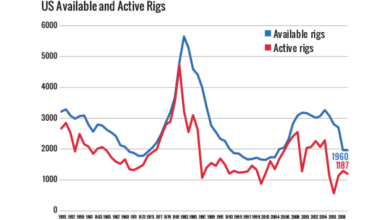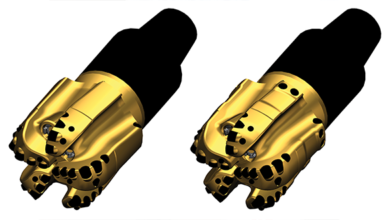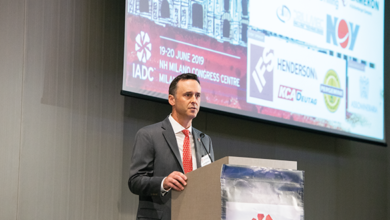News Cuttings
IADC WellSharp Plus to integrate human factors into technical well control training
IADC is preparing to launch WellSharp Plus, a new accreditation program that fully integrates human factors (i.e., crew resource management) into technical well control training and specifically targets experienced personnel.
The primary goals of this new program are to reduce the potential for human error and to contribute to the competence of personnel during drilling operations.
Throughout 2018, a workgroup comprising course designers, human factors experts and other stakeholders worked together to develop a human factors curriculum, program and course requirements, as well as a new “train-the-trainer” course for human factors instructors.
Rather than creating an isolated human factors course or training module, course designers recognized the value of creating a new model for content delivery – one that emphasizes the specific contributors to human error in the context of well control by fully integrating the technical and nontechnical content.
IADC’s new human factors curriculum aligns with content developed within other industries and by other oil and gas organizations. The topics generally correlate with at least one of the following six categories: situation awareness, decision making, communication, teamwork, leadership, and factors that affect human performance. This last category comprises the human conditions that affect the other five categories, such as fatigue, stress, difficulty managing distractions and cultural differences.
To maximize learning and knowledge retention, WellSharp Plus instructors are required to meet additional qualification requirements that include successful completion of “train-the-trainer” coursework involving the following: facilitated learning methods, adult learning principles, strategies that appeal to different learning styles, and strategies for delivering and assessing the human factors content.
The format for a WellSharp Plus course comprises problem-solving through teamwork in which participants fulfill the roles that make up a rig crew: driller, assistant driller, supervisor (toolpusher, companyman), and other positions. The course uses case studies and simulation to deliver content and to provide the instructors with an opportunity to observe and assess the human factors and technical skills in order to guide a debriefing session following each case study.
“This new course will be an important element in what we are calling our ‘Cycle of Competence,’ in which each member of the rig crew can complete position-specific training, competence assessment at the jobsite during operations, continuous learning between the required courses, and then begin the cycle again all throughout his or her career,” Mark Denkowski, IADC VP Accreditation Operations, said. “Now, we can set our sights on continuous learning, the next logical step.”
The program is expected to begin accepting applications in April 2019. Companies intending to apply may obtain additional information by e-mailing accreditation @iadc.org.
IADC Cybersecurity Committee Hosts Houston Workshop

The IADC Cybersecurity Committee ended 2018 with a well-attended third annual cybersecurity workshop in Houston, sponsored by BP. The workshop served as a forum for drillers, operators and the service sector to discuss potential cyber attacks on both land and offshore drilling assets and to discuss how to protect, detect and respond to the cyber attacks.
Cyber attacks have the potential to devastate entire companies. Thus, cybersecurity has quickly become a major corporate concern. IADC has actively pursued the development of cybersecurity solutions and guidelines as they relate to drilling assets for nearly five years.
The association has focused on developing best practices based on existing standards to assist drilling companies as they build cybersecurity into industrial control systems and operational technology systems across the industry’s value chain.
IADC Houston Chapter elects 2019 officers
The IADC Houston Chapter recently elected Joseph Rausch, Nabors Drilling/Canrig, as Chairman and Marc Noel, Independence Contract Drilling (ICD), as Vice Chairman. Other officers include:
• Matt Eve, Patterson-UTI Drilling, Secretary and Sporting Clays Chairman;
• Brian Townsend, Stellar, Treasurer;
• Chris Menefee, ICD, Scholarship Chairman;
• Joseph Hudson, Latshaw Drilling, Programs, Operator Involvement;
• Carla Fontenot, Maersk Training, Communications, Operator Involvement;
• Jeff Kessler, Blake International Rigs, Sporting Clays Vice Chairman;
• Teri Wadley, Joliet Equipment, Christmas Gala Chairman; and
• Scott Gordon, H&P International Drilling Co, Christmas Gala Vice Chairman.
IADC submits amicus curiae to Supreme Court in case on personal injury claims for seamen
In January, IADC submitted an amicus curiae in the matter of Dutra Group v. Christopher Batterton, a Supreme Court case that will decide whether punitive damages are available to seamen filing personal injury claims.
In the amicus brief, IADC argued that rigorous and protective compensation schemes for seamen are already in existence, with Congress implementing and overseeing a wide array of federal agencies, statues and rules regulating operations.
The amicus also points out that allowing punitive damages as contemplated by the Ninth Circuit would affect IADC members by having a detrimental impact on uniformity in worker claims, settlement and trial of such claims, contractual obligations and insurance coverage in the offshore oilfield and negatively impacting the economy and consumers in general.
Other groups that submitted Amicus Briefs on the matter were the Chamber of Commerce of the USA and International P&I Clubs; the American Maritime Association; the Waterways Council and the American Waterways Operators.
IADC Joins bipartisan Coalition to Support Congressional Passage of United States-Mexico-Canada Agreement
To advocate for the swift passage of the United States-Mexico-Canada Agreement (USMCA) during the 116th Congress, IADC has joined the Pass USMCA Coalition.
Pass USMCA is a bipartisan effort led by Democrat Gary Locke, former ambassador to China, Secretary of Commerce, and governor of Washington; and Republican Rick Dearborn, who has served two US presidents and six US senators.
The coalition is focused on supporting swift passage of the USMCA by highlighting its unique benefits to America’s workers, consumers, businesses and economy.
“When the USMCA was announced last year, IADC was supportive as it included provisions that promoted the swift movement of equipment and personnel across the borders of North America, an issue that is particularly important to IADC’s membership,” said IADC President Jason McFarland. “Trade with Canada and Mexico supports 14 million US jobs across many sectors, which in turn drives billions of dollars in annual US exports. The Pass USMCA Coalition is comprised of a diverse group of industries, who all share a similar goal of encouraging free and fair trade in North America.”
IADC participates in meetings of European Commission, European Union Offshore Authorities Group
IADC staff members recently attended two back-to-back meetings in Brussels with the European Union Offshore Authorities Group (EUOAG) and the Directorate of Energy of the European Commission (EC).
Steve Kropla, IADC Vice President Special Projects and Member Initiatives, and Derek Hart, IADC Regional Director – North Sea, gave presentations as part of a review of the EU’s Offshore Safety Directive.
Mr Kropla described the IOGP/IADC BOP Reliability Database (RAPID-S53) as part of the discussion on data resources.
Mr Hart spoke to risk management principles, public participation in leasing new areas, assignment of liability and financial responsibility, and deepening the internal market through mutual recognition of mobile non-production installations between Member states.
Further, Jens Hoffmark, IADC Regional VP – European Operations, provided two presentations to the EUOAG. One provided an update on WellSharp and IADC activities. The second regarded potential training that IADC might help to develop and deliver to European regulators.
WellSharp Surpasses 100,000-Trained Milestone
WellSharp, IADC’s well control training and assessment standard, recently surpassed its 100,000-certified milestone. Launched in March 2015, the WellSharp program now comprises 10 drilling operation and well servicing courses, more than 500 instructors, 160 accredited training providers and approximately 1,100 test proctors. It is offered in five languages in 37 countries.
“As a member of the IADC WellSharp Advisory board, it is exciting to know IADC reached over 100K-certified in the program,” says Fritz Golding, Director of Learning and Development at Noble Drilling. “This is a great accomplishment for the industry as we strive for safer operations and knowledgeable personnel.”
New courses added to the original Drilling Operations Awareness, Introductory, Driller, and Supervisor courses include these Well Servicing courses: Coiled Tubing, Snubbing, Wireline, Workover, Oil and Gas Operator Representative, and a Subsea Supplement. A Well Servicing Introductory course and a Drilling Operations Engineer course are in development.
“The overwhelming success of this program is directly attributable to the hundreds of hours of work contributed by IADC members and subject matter experts to revamp our approach to well control training,” IADC President Jason McFarland said. “The industry is certainly safer as a result, and I congratulate all of those who have successfully completed the program.”
Mission petrohouse app launched on drilling matters
IADC’s Drilling Matters initiative to educate the public and dispel myths about our industry recently rolled out an Android app for its Mission Petrohouse game. Players steer a retro rocket ship through a home and “zap” everyday products created from petroleum to fill the rocket’s fuel tank. The game tracks the number of items zapped and provides helpful information about each item.




